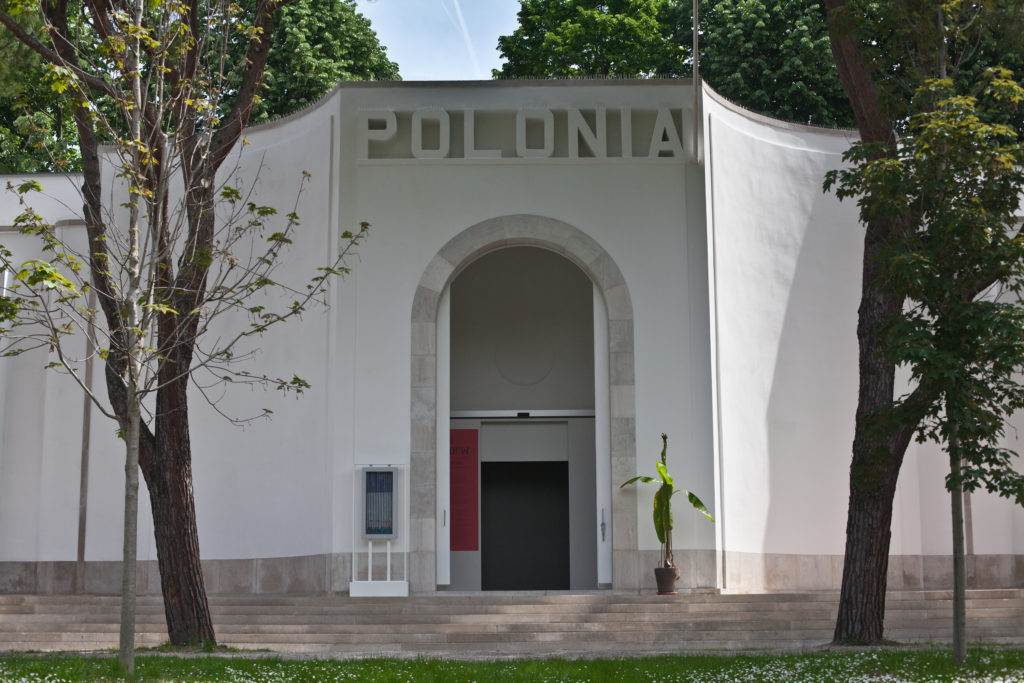
Results of the competition for a curatorial project of the exhibition in the Polish Pavilion at the 60th International Art Exhibition in Venice in 2024
The Minister of Culture and National Heritage, Prof. dr hab. Piotr Gliński, has accepted the Jury’s recommendation of the winning project Polish Practice in Tragedy. Between Germany and Russia, presented by curators Piotr Bernatowicz and Dariusz Karłowicz, featuring Ignacy Czwartos, to be shown at the Polish Pavilion at the 60th International Art Exhibition in Venice (La Biennale di Venezia) in 2024.
On 18 September 2023, as part of the second stage of the competition for a curatorial project for the exhibition in the Polish Pavilion at the 60th International Art Exhibition in Venice in 2024, Jury deliberations took part at Zachęta — National Gallery of Art. The Jury, appointed by the Minister of Culture and National Heritage, included Prof. Elżbieta Banecka, Andrzej Biernacki, Prof. Tadeusz Boruta, Jarosław Denisiuk, Jagna Domżalska, Dr Janusz Janowski (Jury chairman), Janusz Kapusta, Agnieszka Komar-Morawska, Prof. Lech Majewski (absent), Dr hab. Zbigniew Makarewicz, Dr Maciej Mazurek, Prof. dr hab. Kazimierz Nowosielski, Urszula Święcicka, Joanna Warsza and Dr Karolina Ziębińska-Lewandowska.
Choosing from among 24 shortlisted entries, the jury selected the project Polish Practice in Tragedy. Between Germany and Russia, curated by Piotr Bernatowicz and Dariusz Karłowicz, featuring Ignacy Czwartos.
The entry Repeat After Me, submitted by Marta Czyż and OPEN GROUP (Yuriy Biley, Pavlo Kovach and Anton Varga), was selected as the reserve project.
In accordance with the rules of the competition, all submitted projects can be viewed on the COMPETITION page.
More about the winning project:
‘The exhibition we want propose to present in Venice is the fruit of profound reflection by Polish artist on the tragic history of the 20th century.
The tragic nature the artist tells us from the depths of Polish experience, is its inalienable feature. The world is not arranged in any simple pattern, it is full of irremovable contradictions, conflicts of interests and ideas, dilemmas that have no simple solutions.
The Greeks invented tragedy. The Poles rehearsed it.
The scene of Polish tragedy lies between Germany and Russia. In the 20th century, this meant experiencing two bloody totalitarianisms remaining with each other in a relationship that, following François Furet and Ernst Nolte, could be called “hostile proximity.” Although they differ in their diagnosis of reality, ideals and goals, they are similar in their belief in the necessity of violence, terror and extermination. However, this is not the only similarity. The common foundation of both systems was the belief in the possession of fullness of agency and knowledge – qualities that in the European spiritual tradition were attributed exclusively to God.
The exhibition’s opening image of the paradisiacal tree of the knowledge of good and evil, symbolically present on the „INRI” painting, is meant to remind us of the temptation that for the first time in history became the principium of the political order. The promise of „Eritis sicut dii scientes bonum et malum” was intepreted politically. Viewed from this perspective, politics no longer means an attempt to rationally order the human world, but the creation of a new order and a new man.
The paintings of Ignacy Czwartos are an artistic testimony to this experience. At the same time, they take it to a metaphysical level by showing the universal and spiritual character of local history. Extracting this universal content from the unique Polish experience is the essential theme of the exhibition.’
60th International Art Exhibition – La Biennale di Venezia
20 April – 24 November 2024
general curator: Adriano Pedrosa
main theme: Foreigners Everywhere
https://www.labiennale.org/en/art/2024
Polish participation in the 60th International Art Exhibition is financed by the Ministry of Culture and National Heritage of the Republic of Poland.
